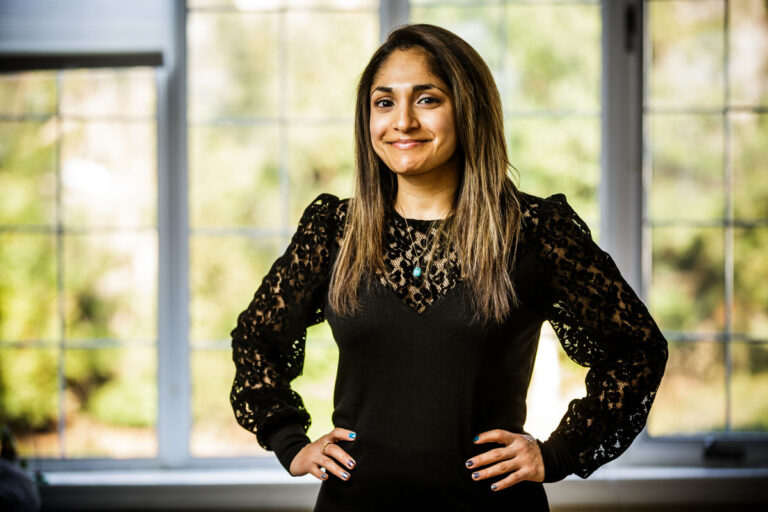Stacey Rose
BS business administration ’08
Founder, Pearbond (Somers Point, New Jersey)
Age 37
Drexel’s compassionate response to a personal disaster put Stacey Rose on a path to help students prevent conflict in their own lives through the power of consent.
When a three-alarm fire destroyed the West Philly rowhome Stacey Rose shared with four other Drexel students in 2006, the then-pre-junior was overwhelmed. At a friend’s suggestion, she reached out to the Office of Student Life.
“They said, ‘We’ve been looking for you,’” Rose, now 37, recalls. “It was one of those moments where your whole heart swells.”
Drexel took over, arranging for Rose and her roommates to safely salvage belongings from the home’s remains, securing the students’ free housing, replacing their textbooks, notifying faculty and more. “I’ve never felt so loved by a group of people I didn’t really know,” Rose says. “I wanted to return that kindness.”
Soon after, Rose decided to dedicate her career to “guiding students through all sorts of crises and conflict — helping them put out fires of their own.”
After graduating from Drexel, Rose earned her master’s in college student personnel from Bowling Green State University. In her first job as a health educator at Springfield College in Massachusetts, Rose developed an interest in Title IX, the civil rights law that prohibits sex-based discrimination, including sexual violence, in schools. Rose noticed a disconnect between the ways college students actually talked about sex education or preventing sexual violence and the jargon used in Title IX educational materials.
“I believe using consent unlocks your most fabulous life through empathy, boundaries, humor and kindness. It allows us to connect together authentically and disconnect from the yuck.”
“It was almost like teaching people how to drive by only talking about car accidents, not how the car works,” Rose says. She noted educational materials that largely ignored critical topics, including communication and consent, to instead focus on the clinical and legal issues surrounding sex, such as disease spread, unplanned pregnancy and rape.
Those “heavy” topics represent just a small part of the human sexual experience, Rose says, and emphasizing them alone leaves students intimidated, uninspired and unprepared. “I felt this overwhelming need to create something different than what I saw.”
Rose headed back to the classroom, this time earning a certificate in sexual health. Her capstone project: create a new Title IX consent program.
That was in 2016. Today, Rose’s project has evolved into a business she runs out of Somers Point, New Jersey, called Pearbond, through which she provides Title IX sex education training and consultation to colleges and universities. Her main presentation, Consensuality, features a read aloud of her short, rhyming storybook “The Consent Chronicles,” which uses emojis, such as eggplants and tacos, to illustrate such topics as coercion, sex positivity and desire.
“I tried to make it interactive and fun and real,” Rose says.
The Consensuality program also has specialized presentations for Greek organizations and for students with health-related majors. Pearbond’s other offering, the NCAA-compliant Got Game? program, is geared toward student-athletes.
Now balancing her business with a PhD program at Widener University, where she is studying human sexuality with a focus in sex education, Rose says she’s excited for Pearbond to grow.
“My time at Drexel taught me to make sure that whatever I was doing was a quality effort that made sense for the people I was serving,” she says. “As I keep that in focus, I’ll be fine.”
The change I’d like to see most in the world…
I want consent to be the norm! As a consent educator, I believe using consent unlocks your most fabulous life through empathy, boundaries, humor and kindness. It allows us to connect together authentically and disconnect from the yuck. Consent all the time can change the world.



